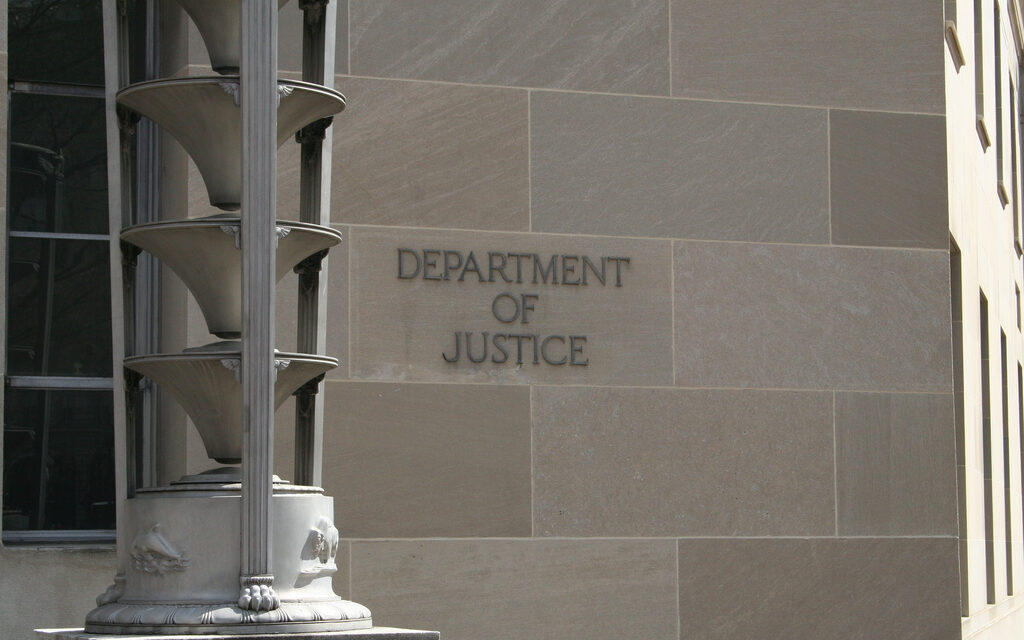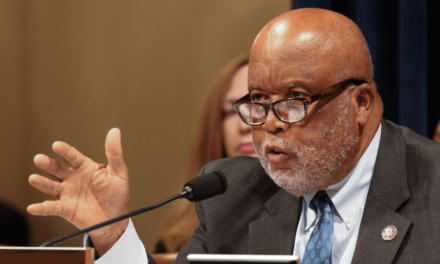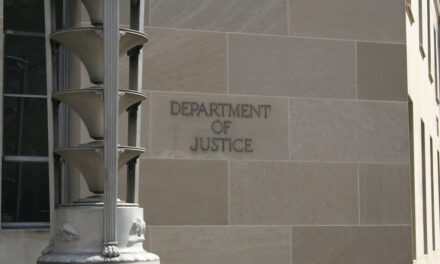The Ku Klux Klan went broke and disbanded during World War Two. James Colescott, their Imperial Wizard at the time, blamed FDR (“the nigger lover”) and Henry Morgenthau, Jr. (“that Jew”) for orchestrating his organization’s demise. In truth, though, it was the Internal Revenue Service that came calling with a bill for $685,305 in unpaid taxes.
I want you to know that Jefferson Beauregard Sessions III had nothing to do with this. He wasn’t even born until two years after the second iteration of the Klan closed up shop.
When it was announced that Sessions would be the nominee to serve as Attorney General, the right-wing alt-right wingnut media was ready with their talking points, which were heavy on the idea that Sessions is the farthest thing from a Klansman that you ever saw and that he’s actually responsible for singlehandedly crushing the Klan to death. Even Erick Erickson got into the game, informing us that “The media wants you to think Jeff Sessions is some sort of Alabamian unrepentant racist, but in fact Jeff Sessions has a long history of fighting segregation in Alabama, seeking the death penalty for KKK members, and marching with civil rights leaders to commemorate and honor the 50th anniversary of the march at Selma.”
On that whole seeking the death penalty for KKK members thing, I’m having just a wee bit of trouble verifying that. You see, it’s a reference to the conviction and ultimate execution of Henry Francis Hays. On March 21st, 1981, Hays and two coconspirators kidnapped Michael Donald off a Mobile, Alabama street and lynched him. The United States Attorney for the Southern District of Alabama at the time was Jefferson Beauregard Sessions III, which must have been a great comfort to Michael’s mother, Beulah Mae Donald.
At first, the investigation went in a very Alabama kind of way:
The Mobile police chief was certain from the very beginning that the Klansmen were involved. Despite that, the police soon arrested three young men they described as ”junkie types.”
The whole junkie thing didn’t really fly because junkies aren’t known for hanging black people up in trees down the street from their mother’s house, and Michael didn’t use drugs. So, the District Attorney for Alabama asked the Federal Bureau of Investigation for some help. That investigation “produced no useful evidence, however, and it seemed that the killers would go unpunished.”
We’re quite a way down the road here and we still have not seen an appearance by the U.S. Attorney for the Southern District of Alabama. We will hear now from his assistant:
The FBI investigated and was ready to close its investigation, but Thomas Figures, the Assistant U.S. Attorney in Mobile, asked the Dept. of Justice to authorize a second investigation and worked closely with FBI agent James Bodman. His brother Michael Figures, a state senator and civil rights activist, served as an attorney to Beulah Mae Donald and also encouraged the investigation. Two and a half years later in 1983, Henry Hays and James Knowles were arrested. Knowles confessed to Bodman in 1983, and additional evidence was revealed during the civil trial initiated by Donald’s mother Beulah Mae Donald in 1984. As a result, in 1988 Benjamin Franklin Cox, Jr., a truckdriver, was indicted as an accomplice in the criminal case. Henry’s father Bennie Hays was also indicted in Donald’s murder.
There are two things I want you to take away from that blockquote above. First, the third iteration of the Ku Klux Klan was ruined by Beulah Mae Donald’s civil case which resulted in a $7 million judgment in her favor. She wound up owning the KKK’s Tuscaloosa headquarters. And all-white jury gave it to her, too, which she didn’t expect.
“When the trial was over, the jurors came down and told me, as people do, that they felt for me,” she says. ”But the verdict didn’t make me feel better. What happened to Michael — I live it day and night. I was just surprised that a white jury could do this.”
Second, where have we heard that name “Thomas Figures” before?
In 1986, Session’s nomination for a federal judgeship was rejected after one of his former subordinates, Thomas Figures, alleged that Sessions called him “boy,” made remarks disparaging civil-rights organizations, and made jokes about the KKK, even as his office was investigating the Donald lynching.
Specifically, Sessions joked that he thought the KKK was okay until he realized that they liked to smoke marijuana, which is precisely the kind of joke that a guy named Jefferson Beauregard Sessions III would make while handling a pesky Mobile, Alabama lynching case.
So, so far I coming up blank on Sessions fighting to prosecute Klansmen or urging their execution.
In fact, what I’m getting is this:
In 1986, Figures testified before the Senate that while it was “literally true” that Sessions had not “obstructed the investigation of the murder of Michael Donald,” Sessions had “tried to persuade me to discontinue pursuit of the case.” Figures said that Sessions “remarked, with regard to the investigation, that the case was a waste of time, that it wasn’t going anywhere, that I should spend more time on other things, and that, if the perpetrators were found, I would not be assigned to the case.” Figures told the Senate that after the case went to the grand jury, and it “became increasingly apparent that we were going to break the case, Mr. Sessions attitude changed” and that he supported the prosecution.
The best anyone can do with this is tell us that Sessions let the Civil Rights guys from the Bureau’s DC headquarters use his offices to interview Klansmen. That’s supposed to pass for “fighting segregation in Alabama, [and] seeking the death penalty for KKK members.”
In the end, the case was tried by local prosecutors, not the Justice Department. A jury imposed a sentence of life imprisonment but the judge overruled them and imposed the death penalty. When Sessions became the Attorney General of Alabama, he opposed any mercy for Henry Hays, but that only put him at odds once again with the NAACP which was helping Hays appeal his death conviction.
By the time Hays was actually executed in 1997, Sessions was already a Senator. The most charitable spin we can put on this is that Sessions didn’t use every ounce of energy he had to stiff-arm the Civil Rights division and his own black deputy, and he let an investigation he didn’t like or want proceed without creating a bunch of problems. He bitched and moaned about it. He said the KKK was all right and the NAACP were a bunch of pinko bastards, but he didn’t stand in the doorway in the Heart of the Great Anglo-Saxon Southland with a bullhorn screaming “segregation now, segregation forever.”
New Jersey’s African-American Senator Cory Booker will become the first senator to testify against a presidential nominee today. He’ll be joined by civil rights hero Rep. John Lewis, who had his skull fractured in Selma, Alabama. The leader of the Black Congressional Caucus, Cedric Richmond of Louisiana, will testify against Sessions, as well. They’re aren’t doing this because they think Sessions has been an ally or that he’s responsible for crushing the Alabama Klan.
Booker was clear in his motivation:
“We’ve seen Jeff Sessions — that’s Senator Jeff Sessions — consistently voting against or speaking out against key ideals of the Voting Rights Act, taking measures to try to block criminal justice reform…He has a posture and a positioning that I think represent a real danger to our country…The Attorney General is responsible for ensuring the fair administration of justice, and based on his record, I lack confidence that Senator Sessions can honor this duty,” Booker said.
They’re going to try to argue that Jeff Sessions is a good man and a friend of blacks and that he can responsibly and fairly run the Justice Department. That’s ludicrous, and you should let everyone know it.






